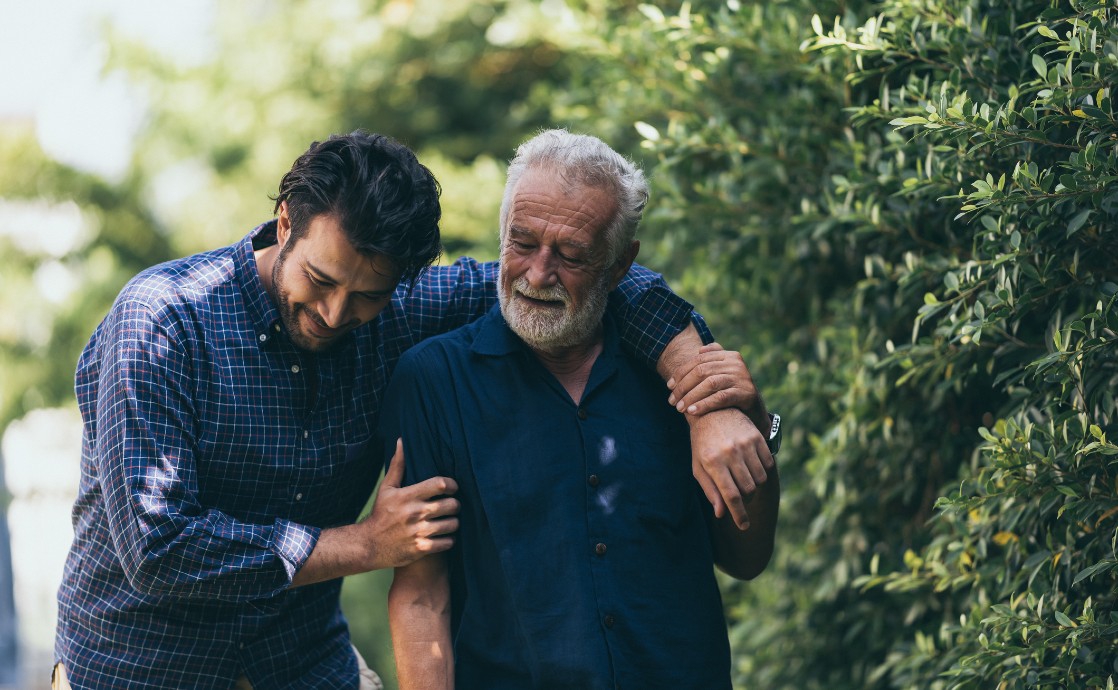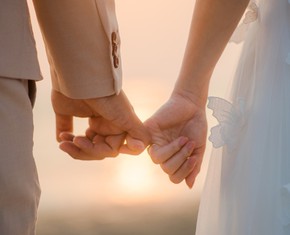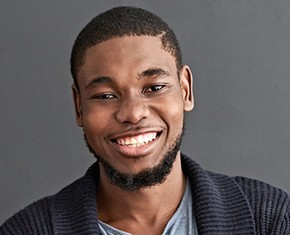The views expressed in our content reflect individual perspectives and do not represent the authoritative views of the Baha'i Faith.
My father Ross was an alcoholic – but in the end, he didn’t let his drinking define him.
As a young man during the Depression, before his addiction took hold, he and a companion outworked a crew in the Kilgore oil fields for a job that enabled him to send money home to his struggling parents. He had a strong character – as a youth, I saw him stand up to a menacing younger man in spite of weakened health.
RELATED: Opioids and the Loss of a Child: Heartened through Heartbreak
Raised during the hard years of the Great Depression, he joined millions of young men to “fight the good fight” against the Axis powers in the Second World War. Assigned to fly transport in the Asian theater of the war, he was flawlessly courageous. In 1942 he would pass a rigorous exam as an officer candidate despite his backwoods upbringing and lack of a higher education.
Recognized for their heroism in the Second World War in Tom Brokaw’s “The Greatest Generation”, many veterans suffered from PTSD before the invention of such a term. After the 20th century’s two World Wars, they called it “shell-shock” or “battle fatigue.” Many veterans emerged from that horrific conflict dependent on alcohol and nicotine, and Dad was no exception. Discharged from the US Army-Air Corp as a Major in 1945, he struggled to reintegrate himself into civilian life while falling prey to his addictions.
As his eldest son, born in 1946, I experienced a childhood traumatized by an atmosphere of alcohol, conflict, and divorce. A second marriage fared no better. By the end of this marriage, Dad had bartered away economic stability as we faced an uncertain future. Drifting from place to place, I attended five junior high schools in the 7th grade.
Thanks to being raised around alcohol and its effects, I detested it. When it is your parents raging in a drunken stupor at each other while you cower frightened nearby, the childhood trauma on some level seeps and lurks within you throughout life. While alcoholism contributed to the ruin of my father’s first two marriages and destroyed the health of a once robust man, I have observed that people who drink excessively can become increasingly addicted and surround themselves for support of their addiction with others who share in their habit – a habit hard to break or condemn in an alcohol-accepting culture.
Whether socially or palliatively induced, the continuing consumption of alcohol and the disease of alcoholism gradually erodes health and affects relationships. Because that erosion occurs over time, an alcohol-dependent person is seldom aware of its long-term consequences and likely defensive if challenged. Health-wise, modern medicine has established that alcohol contributes to a host of ailments: anemia, cardiovascular disease, cirrhosis of the liver, sexual dysfunction, dementia, high blood pressure, diabetes, pancreatitis, and ultimately death.
The Baha’i Teachings on Alcohol
Unsurprisingly, the Baha’i teachings instruct Baha’is not to consume alcohol unless prescribed by a competent physician for curative purposes. Baha’u’llah, the prophet and founder of the Baha’i Faith, wrote in his Most Holy Book:
It is inadmissible that man, who hath been endowed with reason, should consume that which stealeth it away. Nay, rather it behoveth him to comport himself in a manner worthy of the human station, and not in accordance with the misdeeds of every heedless and wavering soul.
Abdu’l-Baha, Baha’u’llah’s son and successor, elaborated when he wrote “… both light and strong drinks are prohibited. The reason for this prohibition is that alcohol leadeth the mind astray and causeth the weakening of the body.”
RELATED: The Link Between Trauma and Addictions
Call an Ambulance!
One morning in the spring of 1959 my father awoke in excruciating pain. “Barry, call an ambulance!” he shouted at me. At the hospital he was coherent long enough to call and ask his sister, in another part of the country, to please come and look after me. He underwent emergency surgery for acute pancreatitis brought on by years of alcohol abuse. Comatose, doctors gave him little chance of surviving.
Thankfully Dad did survive his emergency operation. But for the rest of his life until his passing at 69 years of age in 1985, he would suffer surgeries again and again on his compromised digestive system. In advancing years, he would lose his sight to diabetes and eventually require constant care.
But after that shock to his system in 1959, he never touched alcohol again.
In spite of his troubles, Dad had a marvelous sense of humor. When I saw him in 1985 and he needed help with writing a check due to his fading eyesight, I asked him how he had driven his car so recently to a local coffee shop where he relaxed. “Well,” he replied. “When the cars go, so do I. And when they stop, I do too.”
In 1961, two years sober and mentally revived, Dad met and married Margaret. In her he found a spiritual companionship on a physical level. Before she passed away ten years later from uterine cancer, Margaret and Ross were the best of lovers and the best of friends. Through her son, Toddy, she brought Dad the knowledge of the Baha’i revelation late in 1966. Straightaway he accepted Baha’u’llah as the return of the Christ spirit. Massaged by suffering, he embraced the divine Beloved and rejoiced in His tender compassion, as Baha’u’llah wrote in his book Epistle to the Son of the Wolf:
The companions of all who adore Thee are the tears they shed, and the comforters of such as seek Thee are the groans they utter, and the food of them who haste to meet Thee is the fragments of their broken hearts.
My father gave up alcohol, thanks to an intense near-death health crisis in his life. Through his embrace of the Baha’i Faith and its transformative influence, he became a companion second to none. For the first time, he became a loving and attentive father, too. Blessed with a brilliant mind and a purity of heart, he touched others with a profundity of penetrating insights into biblical scripture relating to the return of Christ. Like a lion, he roared out and astonished those who came into his presence with his insight and perception. Yet, he also demonstrated a sweetness of character that endeared him to friends and acquaintances.
When he passed from this world in December of 1985 and I stood at the podium at his service, I could barely express my farewell. To this man who had so upended our lives, but who in later years had such a life-altering effect on our spiritual destinies, I realized that with his life he had indeed fought the good fight and in the end won the eternal prize.
















Comments
Sign in or create an account
Continue with Googleor